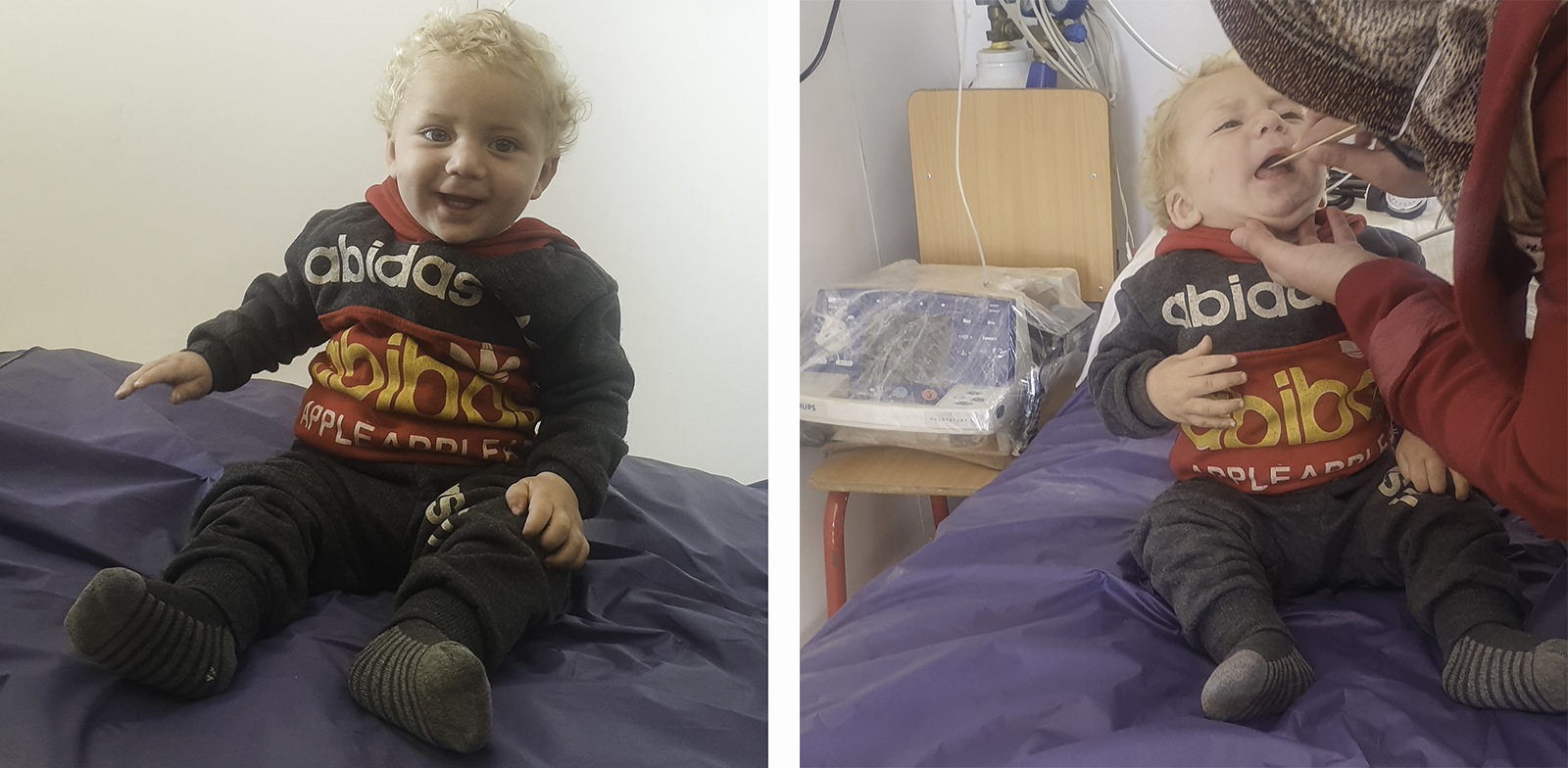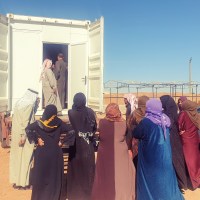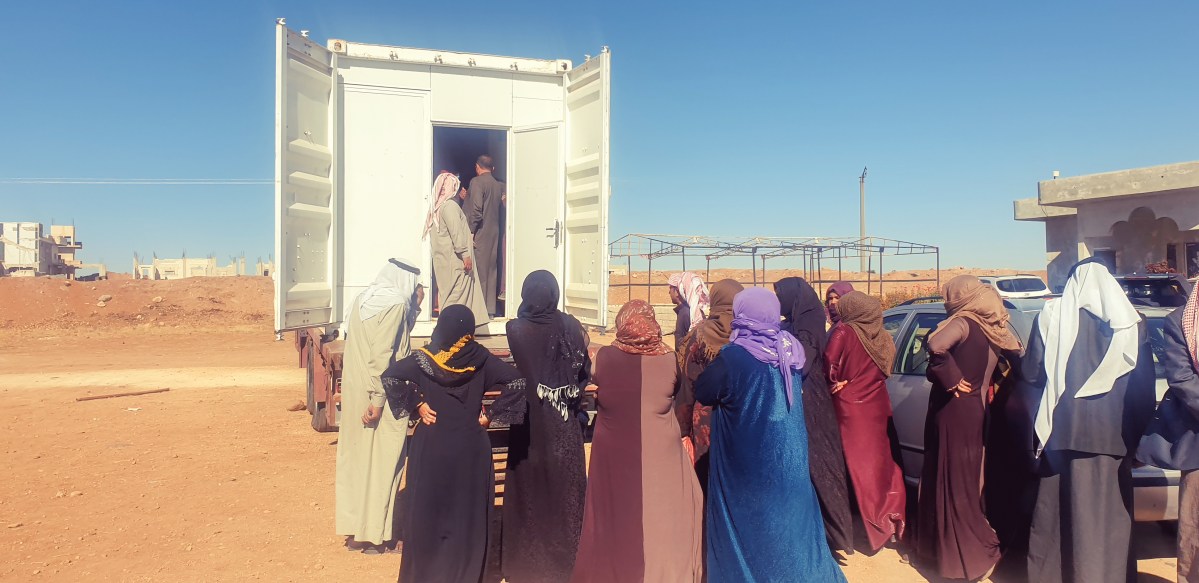Many rural areas across Idlib Governorate, southwest of Aleppo, suffer from a lack of medical services—especially reproductive and general healthcare. This is how the idea of supporting a mobile clinic came about. In these hard conditions, we work to support many unserved villages, improve the health status in these large areas, decrease the spread of disease, and decrease the death rate as a result of intervention.
As a community, we began providing healthcare solutions in Syria in late 2017, in response to the ongoing civil war. Countless families have been–and continue to be–displaced, impoverished, and left without any options for receiving care, and that’s where we choose to set up our clinics.
This clinic is very busy every day. It provides services five days/week, covers more than 19 remote villages (the estimated population is around 30,000 people), and receives all types of patients.
Over the past five months, more than 7351 people (798 men, 2949 women, and 3604 children) benefited from a range of health care services, including pre-and postnatal consultations, family planning services, and medical advice in general diseases, pediatrics screening, and treatment.
Before bringing the mobile medical clinic here, families were forced to travel long distances to get adequate medical services in the closest city, which meant a long, expensive trip.

Noura, age 25, settled in a village about 8 km away from our clinic, along with her son Khaled. Her husband died when their previous home was bombed, and now she raises Khaled alone.
Khaled often suffered from an upset stomach, bad enough that he started to lose a lot of weight.
Noura doesn’t have any income, and the cost of transportation to the closest free public hospital is very expensive. She didn’t know where to go, or what she should do for her little boy.
Noura told us, “I was about to lose my only child because he was so sick. I was feeling very sad every day, watching him get thinner and thinner and not gain any extra weight. At some point, I lost hope that he would survive, in this hard situation of our life.
I heard that there is a clinic close to my village, so I walked more than one hour to this clinic. They began to treat my child without any cost. The doctor gave me the medicine and instructions.
After weeks of treatment, I visited the clinic again to check his status. He has begun to gain weight again, and I think he will survive.”
Noura, like many of the vulnerable families we serve, expressed her gratefulness to the clinic that gave a glimmer of hope into her life, which was full of despair and loneliness. “The presence of the clinic is very vital for displaced and poor people like us in these unserved villages,” Noura said.
Khaled’s outcome is bright because the community around him took a risk. His mother took a risk and took a long walk with her boy despite her despair. The medical team took a risk, choosing to work in uncomfortable, remote locations. Donors took a risk, believing that the current situation was not the last chapter for the people of Syria. This is what we accomplish together.


